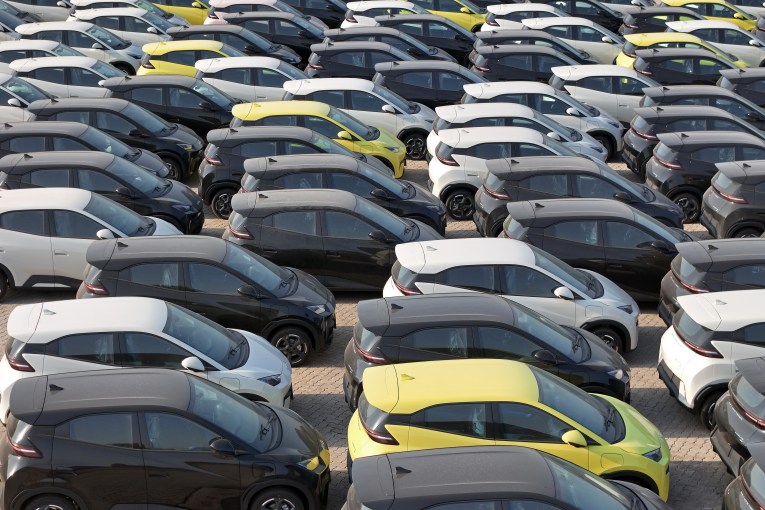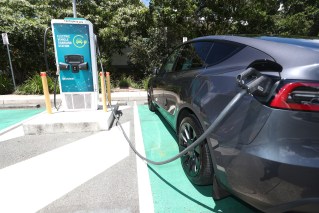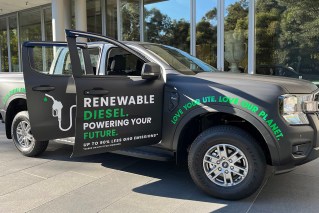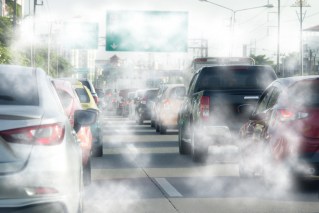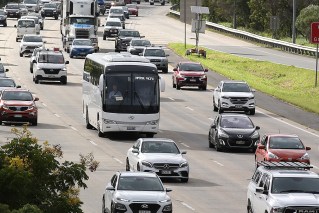Takata airbag recall: 500,000 Australian cars affected

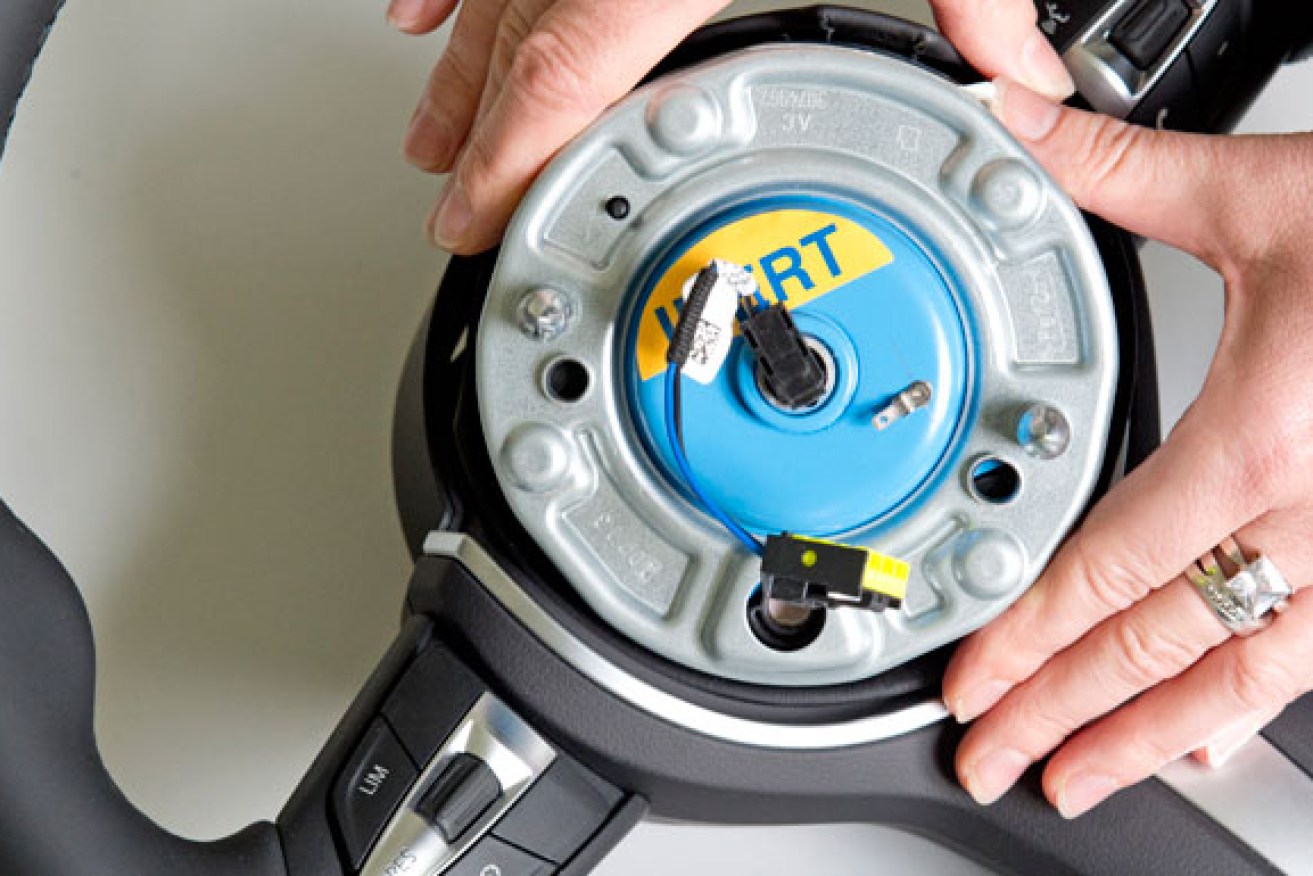
A Takata airbag trigger - known technically as a "pyro-electric airbag initiator" nestles inside a steering wheel hub. Photo: AAP
Almost half a million Australian motorists will need to return their cars for urgent safety work to protect occupants from deadly shrapnel that can be sprayed from airbags in a crash.
There are estimates the recall could affect 50 million cars around the world after it was discovered that a faulty airbag inflator was causing drivers serious injuries when the safety device was deployed.
According to motoring.com.au, the airbag inflators “may explode into small metal fragments causing injury or death”. For Australian motorists, they will be replaced free of charge and the job takes approximately 1.5 hours.
• Toyota, Nissan recall 6.5m cars globally
• Toyota recalls 181,000 cars
• Holden recalls 42,000 cars over seatbelt
Is your car affected?
Honda has recalled 131,800 cars: 2004-2007 Accord Euro, 2002-2008 CR-V, 2004-2005 Civic, 2004-2009 Jazz.
Toyota has recalled 181,000 vehicles in Australia. The recall affects Yaris, Echo, Corolla, Avensis Verso and Rav4 made between 2003 and 2005.
Nissan has issued two recalls, its first was in 2013 for 37,300 vehicles officially sold in Australia, but that recall has been expanded to a further 119,000 vehicles. Cars built between 2003 and 2007 are affected, including Pulsar, Navara, Patrol, X-Trail and Maxima models. The brand believes replacement parts will be available by the end of 2015.
Nearly 4500 Chrysler 300C sedan, built from 2005 to 2007, are affected as is the e46 BMW 3-series, 20 Mercedes Benz SLs and SLKs, and the Mazda 6 and RX-8 from 2002 to 2004.
Holden cars are not believed to be affected, said a spokesman.

Toyota has recalled 181,000 vehicles in Australia. Photo: AAP
What happens in the cars?
In humid situations, the moisture can affect the contents of the airbag inflator. The airbag inflator holds solid wafers which, in an accident, will turn into a gas which inflates the airbag almost instantly.
“Moisture intrusion could potentially make the inflator assembly more susceptible to rupture during airbag deployment,” a recall notice from Honda stated.
If water or moisture is present in the inflator the explosive transformation of the waters into a gas could be too intense, and shatter the device sending shards of metal flying.
In the United States, six deaths and more than 100 injuries have been reported due to the flying shrapnel.
What happens next?
Owners of those cars should first seek information from the manufacturer or from the Australian Competition and Consumer Commission’s product recall website.
Instructions will be posted there on how to arrange repairs.
Takata, the manufacturer of the faulty devices, has warned that the scale of the recall is so large that it will take until the end of the year before it can begin.
